North America 2.0 | Strengthening Security and Tapping Talent Across the Continent
Earlier this year, the Woodrow Wilson International Center for Scholars and partner organizations launched our North America 2.0 project which seeks to strengthen regional cooperation through research, analysis, and policy proposals.
The Center hosted a discussion on opportunities for enhanced continental cooperation as we published our first round of North America 2.0 policy papers on the topics of border security; migration; cybersecurity and critical infrastructure; military cooperation; higher education; and workforce development.
Selected Quotes
Richard Sanders
"Structures are in place, relationships are in place, and there’s a future for security cooperation among North American partners.”
“If trucks and trains and electrons are moving across all three borders, then a purely bilateral approach is not enough.”
“We do need a dialogue at all sorts of levels, but it’s got to be on what works. There’s systems that have worked like NORAD… but we need to be cool and matter of fact and build on what we’ve got.”
Luisa Parraguez-Kobek
“If there’s one clear example of a borderless North America, it is cyberspace.”
“[Critical infrastructure] is one of the areas where deepening cooperation and definitely focusing on best practices at a trilateral level is going to advance the security of North America.”
“We do live in a borderless North America in many ways already, because we are already interdependent in infrastructure and supply chains… We have to push forward on that level and not on separation or our differences. Let’s focus on what we’re good at together.”
Paul Stockton
“There are interconnections that cross our borders—U.S., Canada, and Mexico—and electrons don’t care whether they are Mexican, Canadian, or U.S. electrons. They flow according to the laws of physics and not according to the laws of federal governments in any of our countries.”
“Right now we’re at risk of having the United States, Canada, and Mexico go their separate ways in terms of securing their supply chains and that doesn’t make a lick of sense… Given the interconnected nature of our grids, we need a shared approach to supply chain resilience that respects the sovereignty and differing circumstances of each country but also accounts for the fact that we are dependent on each other and we should move forward together.”
“The idea of a defensive perimeter is old-think… that’s only part of the challenge in the cyber and above all, in the information era.”
Jennifer Fox
“We have to do a better job at trying to find a way to demonstrate to the businesses that are out there… that we hear them and that we’re taking them seriously and that we’re making small efforts that aren’t sexy, that don’t make headlines, but really do have an impact on the everyday bottom line dollar for those trading partners.”
“I don’t think that we have done a good job of having an embedded knowledge management system into the bureaucratic function of government to help inform policy. And that is something I would say to government, please stop making policy without having informed knowledge at your fingertips.”
“Every Canadian truck that crosses the U.S. border invariably is going to turn around and come back. Every Mexican truck that’s crossing the U.S. border is going to turn around and go back… So, if we think that we are protecting our sovereignty by building up walls with respect to these invisible borders, we are not doing that, we are creating invisible impediments to efficiency within our own continent and it just doesn’t make sense.”
Fernando León García
“The coming together of the different parties did in fact promote more collaboration than existed before. What you had before was isolated collaboration that was bilateral… not trilateral. All of a sudden there was a lot of effervescence in terms of collaboration.”
“We’ve learned and we should acknowledge and celebrate the differences that are distinctive for the U.S., for Canada, and for Mexico. But, by all means, let’s recognize and work on the potential synergies that make North America unique.”
Amb. E. Anthony Wayne
“There’s a lot of work to do, and that’s why we really need to get people together… We need national level support for getting these dialogues going. Even if we get them going, it’s going to take a number of years to start building up.”
“This is an opportune moment. Everybody suffered during the pandemic, and they’ve experimented, and they’ve learned. So this is a good moment to start building on that difficult experience and say ‘okay, where do we go?’”
Andrew Selee
“When the three heads of state of North America get together, shouldn’t we be talking about migration in the hemisphere? Clearly, we should be talking about migration. Before it was a tough topic to talk about because it was lopsided… now we’re not talking about that.”
“There’s an opportunity to think about development in Central America… There are different visions [between the United States and Mexico] about what should be done, but there is a meeting point that is interesting.”
“Having Canada at the table to talk about development is really good for Mexico and the U.S. because the Canadians do development well… I often think that when Mexico and the U.S. sit down to talk about migration, it is immensely transactional. When they’re in the room with Canadians, they start to think more strategically.”
2:30 pm | Opening Remarks
- Christopher Sands | Director, Canada Institute
2:35–3:50 pm | Securing Our Continent
Speakers
- Richard Sanders | Global Fellow, Canada Institute
- Luisa Parraguez-Kobek | Global Affairs and International Security Professor, Tecnológico de Monterrey
- Paul Stockton | President, Paul N. Stockton LLC
- Jennifer Fox | Senior Director, Transportation, Infrastructure & Regulatory Policy, Canadian Chamber of Commerce
- Moderator and Presenter: Chappell Lawson | Associate Professor of Political Science, MIT; Global Fellow, Mexico Institute
3:50–4:55 pm | Strengthening our Future through Education, Workforce Development and Human Mobility
Speakers
- Fernando León García | President, CETYS University
- Amb. E. Anthony Wayne | Distinguished Diplomat in Residence, School of International Service, American University; Advisory Board Co-Chair, Mexico Institute
- Andrew Selee | President, Migration Policy Institute; Advisory Board Member, Mexico Institute
- Moderator: Laura Dawson | Principal Program Manager (Americas), Amazon Web Services
4:55 pm | Closing Remarks
- Andrew I. Rudman | Director, Mexico Institute
Speakers

Former member of the Senior Foreign Service of the U.S. Department of State
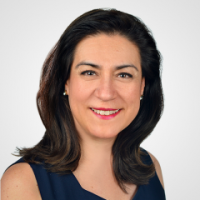
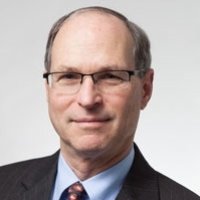
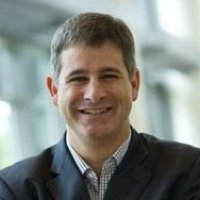
Associate Professor of Political Science at MIT, Director of the MIT International Science and Technology Initiatives
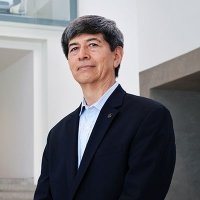

Former Career Ambassador to Afghanistan, Argentina, and Mexico; Distinguished Diplomat in Residence, School of International Service, American University
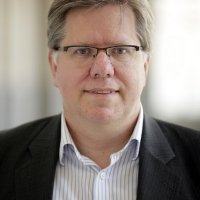
President, Migration Policy Institute
Introductions
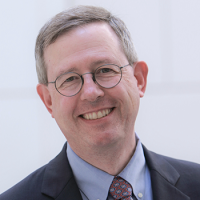
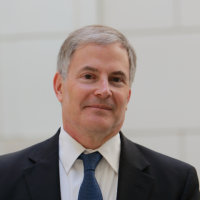
Moderators

Associate Professor of Political Science at MIT, Director of the MIT International Science and Technology Initiatives

Executive Director, Future Borders Coalition
Hosted By

Canada Institute
The mission of the Wilson Center's Canada Institute is to raise the level of knowledge of Canada in the United States, particularly within the Washington, DC policy community. Research projects, initiatives, podcasts, and publications cover contemporary Canada, US-Canadian relations, North American political economy, and Canada's global role as it intersects with US national interests. Read more


Mexico Institute
The Mexico Institute seeks to improve understanding, communication, and cooperation between Mexico and the United States by promoting original research, encouraging public discussion, and proposing policy options for enhancing the bilateral relationship. A binational Advisory Board, chaired by Luis Téllez and Earl Anthony Wayne, oversees the work of the Mexico Institute. Read more


